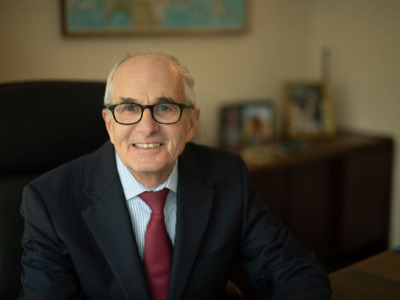The United States is the global leader in the fight against global hunger. USDA and AID were leaders at the 2021 United Nations’ Global Food Systems Summit. We are the biggest contributor to the World Food Program (WFP). Yet, global hunger is getting worse, and it is outstripping the ability of the WFP and other humanitarian organizations to address the problem.
In 2019, UN Secretary-General Antonio Guterres called for the Food Summit in 2021 because he was concerned the world would not meet the goal of eliminating global hunger by 2030. The Conference was held in 2021 and was excellent, but the problem has only gotten worse.
With so many challenges facing the United States and the global community, why should we make global hunger a priority? The answer is that beyond the humanitarian concern (which should be enough), global hunger directly effects the national security of the United States.
WFP is the first line of defense in the fight against hunger, but the only long-term solution is to raise yields around the world. Africa is the biggest problem and has the most potential, but the challenge has spread far beyond Africa.
At the end of last month, the United Nations put out a report saying that nearly 282 million people in 59 countries suffered from “acute” hunger in 2023.
Máximo Torero, chief economist for the U.N.'s Food and Agriculture Organization, said 705,000 people in five countries are at Phase 5, the highest level, on a scale of hunger determined by international experts — the highest number since the global report began in 2016 and quadruple the number that year.
Arif Husain, the U.N. World Food Program’s chief economist, said the number of people acutely food insecure has gone up every year since 2016, and the number is now more than double the number before the COVID-19 pandemic.
The causes are well known: the drought in the Horn of Africa, climate change worldwide, war causing a massive refugee crisis, the invasion of Ukraine, and logistics. The solution, however, is more complicated, and its impact on the United States is not fully appreciated.
Cut through the clutter! We deliver the news you need to stay informed about farm, food and rural issues. Sign up for a FREE month of Agri-Pulse here.
First, the solution. Humanitarian relief is critical. That is where to start, but unfortunately, it is not enough to address the hunger challenge at this point. The only solution is to raise yields around the world. Africa, which has the biggest challenge, also has the most potential because their yields are so low. Yields in Africa are only 10% of our yields.
Dr. Norman Borlaug’s dream of taking the Green Revolution to Africa has started but has a way to go. It is much harder to reach farmers with certified seeds, fertilizers, and education when the farms are only a few acres down a dirt road. Rural farmers do not appreciate that seeds and agricultural inputs are worth the cost of the investment. Dr. Agnes Kalibata is leading the Alliance for a Green Revolution in Africa in this effort.
Even less understood is the impact of global hunger on the US. In short, hunger causes unrest and political instability which can raise the cost of our military defense. No one was more outspoken on this subject than former Agriculture Committee Chairman Pat Roberts, R-KS, but there is a broad bipartisan understanding among political leaders of this connection. President Biden has addressed this connection as has Secretary Vilsack and AID Administrator Samantha Power.
USDA has great expertise which we share with our partners at land grant colleges. Many of our land grant colleges have projects going on around the world, but no one at USDA or anywhere else has an inventory of who is doing what and where. So, it is impossible to coordinate these efforts with other developed countries and UN agencies and create a program to reach rural farmers who need the training and expertise.This is not the sole responsibility of the United States.
The African Union has asked all 55 African countries to devote 10% of their respective budgets to agriculture. Only a few countries have done so.
The Inter-American Institute for Cooperation on Agriculture (IICA) has this goal in its sights. The UN Food and Agriculture Organization must focus more on raising yields.
The UN has established "eliminating hunger" as a top Sustainable Development Goal. If this goal really matters, it will take more than words. The global community must come together with concrete actions.
Marshall Matz is Senior Counsel at OFW Law in Washington, D.C. He was Counsel to the Senate Select Committee on Nutrition when WIC was enacted in 1974.


